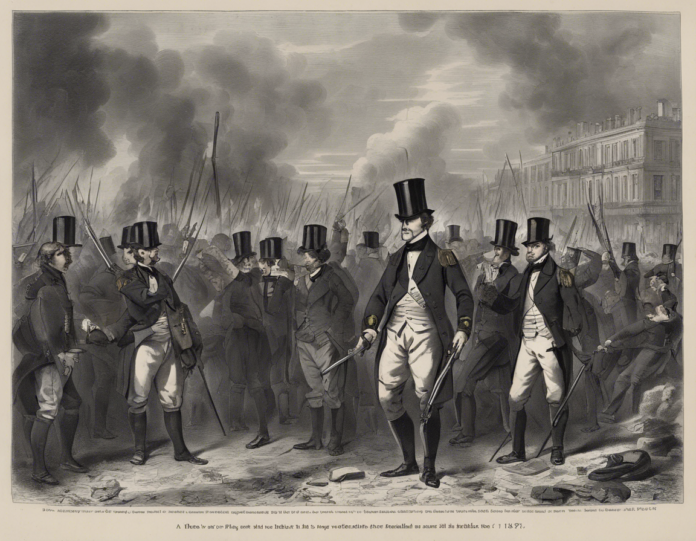The Rebellion of 1857, also known as the First War of Indian Independence, marked a significant turning point in Indian history and had a profound impact on British policies in India. This uprising, which began as a mutiny by sepoys of the British East India Company’s army but quickly spread to involve various groups across India, led to drastic changes in the way the British approached governance, administration, and social relations in the subcontinent. In this article, we will explore the impact of the Rebellion of 1857 on British policies in India and how it shaped the colonial rule in the decades that followed.
Background of the Rebellion of 1857
The causes of the rebellion were multifaceted, stemming from a combination of political, economic, social, and cultural factors. The immediate trigger was the introduction of new Enfield rifles to the Indian troops, cartridges of which were rumored to be greased with cow and pig fat, offending Hindu and Muslim sepoys. This sparked a wave of discontent that quickly escalated into a full-blown revolt against British rule.
Changes in British Policies Post-1857 Rebellion
-
End of the East India Company’s Rule: One of the most immediate consequences of the rebellion was the dissolution of the East India Company’s rule in India. The British Crown took over direct control of India, leading to the establishment of the British Raj.
-
Reorganization of Administration: The British realized the need for a more centralized and efficient administrative system in India. The Indian Civil Service was reformed to include more British officials, and efforts were made to streamline governance.
-
Military Reforms: The British undertook significant reforms in the military to prevent future uprisings. They reorganized the army, ensuring a better mix of British and Indian soldiers in each regiment to avoid a situation where one group could dominate.
-
Religious Sensitivities: The British became more sensitive to religious sentiments in India post-1857. They were more cautious about introducing reforms or policies that could offend the religious beliefs of Indians.
-
Land Revenue Policies: The British also made changes in land revenue policies to ensure a more equitable system. The Permanent Settlement in Bengal was reevaluated, and new land revenue systems were implemented in various parts of the country.
-
Education Reforms: The rebellion highlighted the importance of education in shaping perceptions and loyalties. As a result, the British invested more in education in India, setting up universities and schools to impart Western education.
-
Divide and Rule Policy: The British adopted a more divisive approach to governance post-1857, employing strategies to sow seeds of discord among different communities in India to prevent unity against colonial rule.
Impact on Socio-Cultural Dynamics
-
Social Reform Movements: The rebellion of 1857 gave impetus to social reform movements in India. Leaders like Raja Ram Mohan Roy and Ishwar Chandra Vidyasagar emerged, advocating for reforms in Indian society.
-
Emergence of Nationalism: The seeds of Indian nationalism were sown during the events of 1857. The rebellion served as a unifying force against colonial rule and laid the foundation for future nationalist movements.
-
Impact on Cultural Practices: The rebellion also had an impact on cultural practices in India. The British became more cautious about interfering in religious customs and traditions, recognizing the need to respect indigenous cultures.
Frequently Asked Questions (FAQs)
- Was the Rebellion of 1857 successful?
-
The rebellion of 1857 ultimately failed to overthrow British rule in India but had a lasting impact on colonial policies.
-
What were some immediate consequences of the rebellion?
-
The immediate consequences included the dissolution of the East India Company, the reorganization of the military, and the implementation of various reforms.
-
How did the rebellion impact British policies in India?
-
The rebellion led to changes in administration, military structure, land revenue policies, education, and the adoption of a divisive governance strategy.
-
Did the rebellion have any positive outcomes for India?
-
While the rebellion itself did not lead to independence, it sparked socio-cultural changes and paved the way for future nationalist movements.
-
How did the rebellion influence future nationalist movements in India?
- The rebellion of 1857 served as a precursor to the Indian nationalist movement, inspiring leaders and laying the groundwork for India’s struggle for independence.
In conclusion, the Rebellion of 1857 had a lasting impact on British policies in India, shaping the course of colonial rule in the country. The lessons learned from the uprising led to significant changes in administration, military strategies, and social relations. While the rebellion itself was quelled by the British, its legacy lived on in the form of increased Indian consciousness and resistance against foreign domination, ultimately paving the way for India’s independence in 1947.

